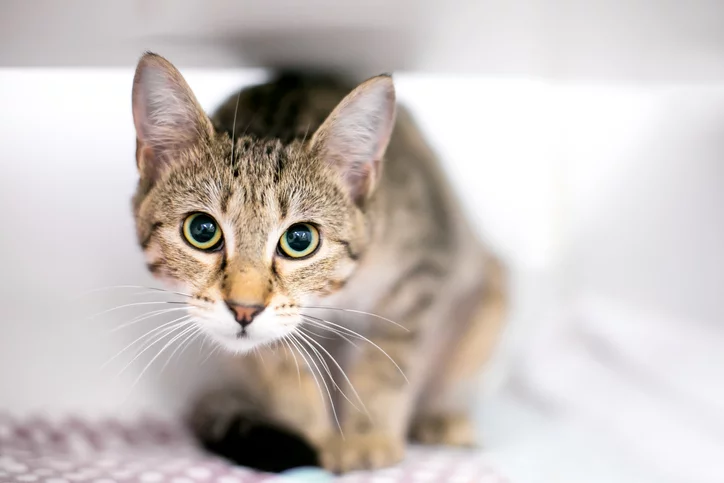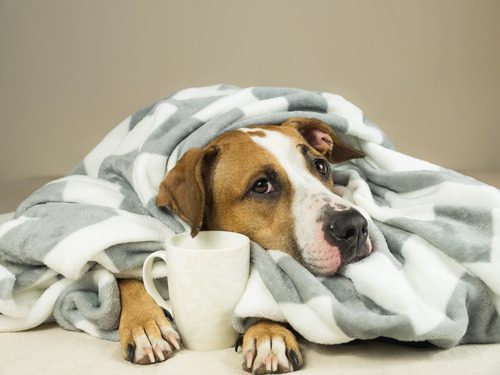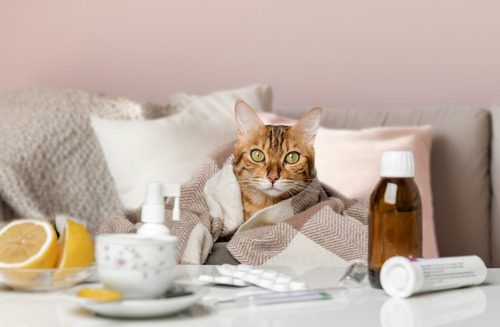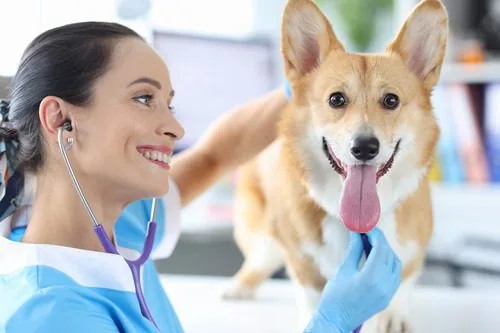Cat Drooling: Causes and What to Do
Have you noticed your cat drooling lately? Drooling in cats is sometimes more concerning than it is in dogs, but it’s important to understand the different potential causes of this behavior, too.

In the article below, you’ll find out about some of the most common causes of drooling in cats. From there, you can find out what to do about each potential issue or behavior. If you have any other questions, be sure to reach out to your veterinarian for some specific advice about your cat’s unique and individual needs.
Happiness
Many cats simply drool because they are happy. If you have a cat who drools while she’s kneading or starts drooling more when she’s getting petted or brushed, then this is probably nothing to worry about. Additionally, a cat who drools while purring is normal and shouldn’t be a cause for concern.
Although you might not necessarily like to be drooled on by your happy cat, there’s nothing you need to do about this behavior. Simply monitor your cat to be sure her drooling only occurs when she’s content.
Stress
Stress can sometimes also cause drooling in cats. Cats may become more stressed when they have to go to the vet, when your family moves to a new home, or when you bring home a new baby or new pet to join the household. All of these events may increase your cat’s stress and lead her to drool more.
If your cat is drooling with stress, you probably don’t need to worry. However, if she seems to be stressed more often than not, you should take her to vet to see if she needs to be on an anti-anxiety medication.
Nausea
Nausea may cause drooling in cats as well. If your cat gets sick in the car, for example, you may find that she’s drooling when you arrive at the vet or back home from your car ride. If the drooling stops when your cat is no longer in a moving vehicle, this is not a major cause for concern.
If, however, your cat is drooling and vomiting often, then she needs to be seen by a vet. This may be a sign of a wide variety of health problems, some of which need to be treated right away.
Dental Problems
Cats who have dental problems and diseases of the mouth may be prone to more frequent drooling as well. Sores and abscesses in the mouth can lead to drooling, as can ulcers, rotting or broken teeth, or gum disease.
If your cat has dental disease, you may notice other symptoms as well, including bad breath or visibly damaged teeth. She may also be uninterested in food because of the pain involved in trying to eat kibble. Speak to your vet for more information about diagnosing and treating dental problems in your cat.
Toxin Ingestion
Sometimes, cats may ingest toxic substances in and around the home. These may include cleaners, medications meant for other animals or humans, toxic plants, and other items. When this happens, your cat may start drooling as a response to the ingestion of the toxin.
If you know your cat has eaten something she shouldn’t, take her to the emergency vet right away, as the substance could be deadly. If you aren’t sure but suspect this might be the cause of your cat’s drooling, monitor her very closely and go to the emergency vet at the first sign of new or worsening symptoms.
Foreign Body Ingestion
Cats may also be prone to swallowing or inhaling foreign objects, including string, pieces of toys, or any small items that may be dropped around the home. If your cat has a foreign object stuck in her throat, stomach, or nasal cavity, she may start drooling in an attempt to get rid of it.
If this happens, you will likely see many other symptoms. You may also be able to see the object, but don’t try to remove it yourself, or you may cause more harm. Go to the emergency vet right away for medical help with this problem.
What Do I Do if My Cat’s Drooling?
There are so many different causes of drooling in your cat that it can be very difficult for a cat owner to determine the cause. This is why it’s necessary to take your cat to the vet if you notice her drooling for the first time. In many cases, drooling is nothing to worry about, but it’s important to rule out the possibility of some issues that can be associated with drooling too.
Once your vet helps you figure out the cause of your cat’s drooling, you can focus on dealing with the treatment. At The Village Vets, our team cares about the wellbeing of your pet and will help determine the underlying cause and the best treatment for this behavior. Of course, if your cat is simply drooling because she’s happy, you might just need to accept that you have a somewhat sloppy cat on your hands! Call any one of our locations today for more information.
Recent Posts
About The Village Vets
The Village Vets is a network of animal hospitals based in Atlanta, GA and the surrounding area. We offer honest, excellent service to our clients in a comfortable, friendly atmosphere. To learn more about our locations and how we can better serve you and your pet, click the button below.
Share This Post
Recent Posts
About The Village Vets
The Village Vets is a network of animal hospitals based in Atlanta, GA and the surrounding area. We offer honest, excellent service to our clients in a comfortable, friendly atmosphere. To learn more about our locations and how we can better serve you and your pet, click the button below.



